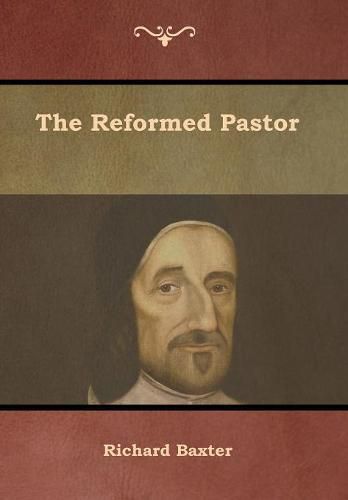Readings Newsletter
Become a Readings Member to make your shopping experience even easier.
Sign in or sign up for free!
You’re not far away from qualifying for FREE standard shipping within Australia
You’ve qualified for FREE standard shipping within Australia
The cart is loading…






This title is printed to order. This book may have been self-published. If so, we cannot guarantee the quality of the content. In the main most books will have gone through the editing process however some may not. We therefore suggest that you be aware of this before ordering this book. If in doubt check either the author or publisher’s details as we are unable to accept any returns unless they are faulty. Please contact us if you have any questions.
Richard Baxter, (born November 12, 1615, Rowton, Shropshire, England–died December 8, 1691, London), Puritan minister who influenced 17th-century English Protestantism. Known as a peacemaker who sought unity among the clashing Protestant denominations, he was the centre of nearly every major controversy in England in his fractious age.
Baxter was ordained into the Church of England in 1638 after studying divinity. Within two years, however, he had allied himself with Puritans in opposition to the episcopacy established by his church. During his ministry at Kidderminster (1641-60) he made that Worcestershire town of handloom workers into a model parish. He preached in a church enlarged to accommodate the crowds that he drew. Pastoral counseling was as important to him as preaching, and his program for his parish came to serve as a pattern for many other ministers in the Church of England.
A believer in limited monarchy, Baxter attempted to play an ameliorative role during the English Civil Wars. He served briefly as a chaplain in the parliamentary army but then helped to bring about the restoration of the king (1660). After the monarchy was reestablished, he fought for toleration of moderate dissent within the Church of England. He was persecuted for his views for more than 20 years and was imprisoned (1685) for 18 months. The Glorious Revolution (1688-89), replacing James II with William and Mary, brought in its wake the Toleration Act that freed Baxter from most of the encumbrances he suffered for his opinions.
Among Baxter’s more than 200 works are devotional manuals, pastoral handbooks, and such highly controversial doctrinal writings as Aphorismes of Justification (1649). His best-known works are The Saints’ Everlasting Rest (1650) and The Reformed Pastor (1656). His autobiographical Reliquiae Baxterianae, or Mr. Richard Baxter’s Narrative of the Most Memorable Passages of His Life and Times (1696), still of interest, gives an account of his inner spiritual struggles. (britannica.com)
$9.00 standard shipping within Australia
FREE standard shipping within Australia for orders over $100.00
Express & International shipping calculated at checkout
This title is printed to order. This book may have been self-published. If so, we cannot guarantee the quality of the content. In the main most books will have gone through the editing process however some may not. We therefore suggest that you be aware of this before ordering this book. If in doubt check either the author or publisher’s details as we are unable to accept any returns unless they are faulty. Please contact us if you have any questions.
Richard Baxter, (born November 12, 1615, Rowton, Shropshire, England–died December 8, 1691, London), Puritan minister who influenced 17th-century English Protestantism. Known as a peacemaker who sought unity among the clashing Protestant denominations, he was the centre of nearly every major controversy in England in his fractious age.
Baxter was ordained into the Church of England in 1638 after studying divinity. Within two years, however, he had allied himself with Puritans in opposition to the episcopacy established by his church. During his ministry at Kidderminster (1641-60) he made that Worcestershire town of handloom workers into a model parish. He preached in a church enlarged to accommodate the crowds that he drew. Pastoral counseling was as important to him as preaching, and his program for his parish came to serve as a pattern for many other ministers in the Church of England.
A believer in limited monarchy, Baxter attempted to play an ameliorative role during the English Civil Wars. He served briefly as a chaplain in the parliamentary army but then helped to bring about the restoration of the king (1660). After the monarchy was reestablished, he fought for toleration of moderate dissent within the Church of England. He was persecuted for his views for more than 20 years and was imprisoned (1685) for 18 months. The Glorious Revolution (1688-89), replacing James II with William and Mary, brought in its wake the Toleration Act that freed Baxter from most of the encumbrances he suffered for his opinions.
Among Baxter’s more than 200 works are devotional manuals, pastoral handbooks, and such highly controversial doctrinal writings as Aphorismes of Justification (1649). His best-known works are The Saints’ Everlasting Rest (1650) and The Reformed Pastor (1656). His autobiographical Reliquiae Baxterianae, or Mr. Richard Baxter’s Narrative of the Most Memorable Passages of His Life and Times (1696), still of interest, gives an account of his inner spiritual struggles. (britannica.com)